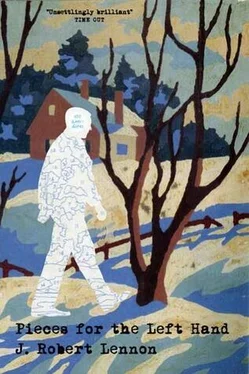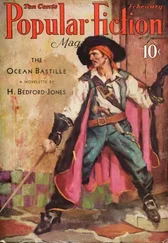On the day before the show was to open, the conceptual artist walked into the gallery reserved for her, and thumbtacked to its far wall signed and executed copies of her original contract, her new contract, and a large color photograph of her lawyer. Then she set a metal salad bowl on the floor, filled it with twenty-dollar bills in the amount of her “raise” and burned them to ashes.
The piece drew thousands of eager museumgoers who had read about the contractual haggling and wanted to see what the fuss had been about. Reactions were strong but mixed. Some said the piece confirmed their opinion that contemporary art was an elaborate scam designed to part pretentious fools from their money. Others claimed the piece confirmed their opinion that contemporary art was once vital and incisive, but had since “sold out” to commercial interests. This latter group divided into two camps: those who believed that the new work was a perfect example of such a sellout, and those who believed that the new work was a brilliant condemnation of those who had sold out.
At any rate, when the exhibition closed, the museum bought the controversial piece for its permanent collection, paying an undisclosed sum far above and beyond the amount originally stipulated for the work’s execution.
I know two professors of literature who were good friends until one night, at a party, when they entered into a debate about the proper spelling of a certain word. One argued for “grey,” the other for “gray.” For some minutes the debate was lively and interesting. The professor who preferred “grey” believed that the word connoted a faded elegance, a kind of obsolete stateliness, which we in America commonly associate with the British; thus the British spelling, with an “e,” was more appropriate. The other professor said that he could not argue with those connotations, but believed that American writers should take a stand and recontextualize the word; “gray,” he insisted, was the color of the Midwestern sky, of clapboards and asphalt, and the long “a” sound in this country, less genteel and more abrasive than its British counterpart, is better expressed by the letter “a,” and not the letter “e.” It is worth noting that the professor who argued for “grey” was a native of the U.S., while the one who preferred “gray” had moved here from London some decades before.
As it happened, the issue was not resolved, and the debate continued for hours after everyone else had lost interest. The professors said several terrible things to one another and have not spoken in the years since the party. I have remained in contact with both, and have noticed in their correspondence that the one who previously supported “grey” has switched to “gray,” and the one who liked “gray” has gone over to “grey.” When I asked them about this, the first explained that an extended stay in the Midwest, and exposure to its patterns of speech, convinced him of his opponent’s point of view, while the second told me that his campaign to Americanize the word now seemed foolish and proud, and he was content to return to his lexicographical roots. Despite the switch, however, of which both are quite aware, the professors remain unwilling to speak to one another, though they teach in the same university department and are forced to see each other almost daily.
As for me, I now try to avoid the word entirely, and if I must describe an object in writing I tend to identify it by features other than its color.
A woman I know, a poet, moved to an apartment in a large city several years ago, in the hope that the new environment would bring a fresh perspective to her life, her enthusiasm for which had been flagging for some time. She dedicated herself to her work, and made a concerted effort, through increased correspondence, to strengthen her bonds with distant friends.
Unfortunately, things did not go her way. Her long, intimate letters went unanswered, the magazines she sent her work to never seemed to respond, and she fell into a depression. The daily mail disappointed her deeply, and often drove her to tears. She became absent-minded and failed to maintain even the simplest household responsibilities: bills went unpaid, utilities were turned off, and her refrigerator always stood empty of food.
She went on to seek solace in expensive therapy, and at long last, when her money was gone, decided to return to small town life. While preparing to move, she went to pick up the mail one day and noticed the corner of an envelope poking out of the slot. Closer examination revealed that the door was hollow, and that a letter had fallen into the open space. Extracting the letter, she discovered that the hollow extended deep into the door, and was filled with unopened mail.
In a panic, she tore the door apart with a hammer, and dozens of letters spilled onto the floor. Among them were the utility bills she never paid, generous replies to her letters, and countless responses from poetry magazines, many of them acceptances on which she had unwittingly defaulted. She spent the next day and a half on the telephone, trying to set things right with her friends and editors, and left the city not long afterward. She reports that her life is much better these days, though she still regrets not having found another way to remove the hidden mail; her landlord refused to return her security deposit (nearly eight hundred dollars) owing to the damage done to her door. She often thinks about the money and fantasizes about what she might spend it on, were it suddenly returned to her.
A composer of film scores and musical theater found himself, despite enormous popular acclaim, smugly reviled by the critics of the day, for whose respect he nonetheless perennially longed. When he died, a biographer discovered among his papers a collection of pieces, dated in the composer’s youth, that seemed to presage the difficult compositional style prevalent among other composers at the time of his death. When published, these pieces caused a great stir, as they appeared to have been dashed off and quickly abandoned for the accessible music the composer would become known and loved for.
The newly discovered music was performed to great acclaim, and, in the ensuing years, was much analyzed in academic circles, with an enthusiasm and gravity usually reserved for the greatest artists of the century. Furthermore, the more accessible works were now seen in the light of the prescient early works, and were celebrated for the very qualities that had before been the subject of such derision, since these qualities now represented a reaction against, as opposed to an ignorance of, current ideas.
For ten years the composer’s reputation grew, until a critic at our local university, who had never been convinced of the authenticity of the early works, commissioned a scientific inquiry into the scores that proved they were written just before the composer died, and not in his youth, as the dates had suggested. The composer had apparently spent his declining years generating pastiches of contemporary music, then back-dated the manuscripts in order to deceive posterity.
The critic publicized his findings and wrote a revisionist biography of the composer that again reversed scholarly opinion of his work, and brought the critic his own great acclaim. It wasn’t until just recently, however, that the critic’s ex-lover, a former graduate student of his whom he had spurned in favor of a younger, more voluptuous and worshipful graduate student, published a paper proving that the critic’s scientific inquiry was itself faked. The paper restored the composer’s reputation, sullied the critic’s, and propelled the ex-lover to sudden fame in academic circles. Furthermore it has resulted in the creation of an Academic Studies department at our university, dedicated to the study of study.
Читать дальше










